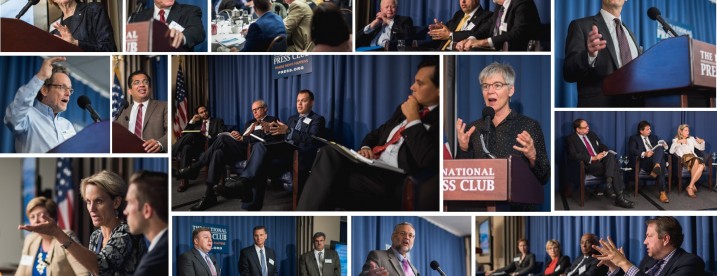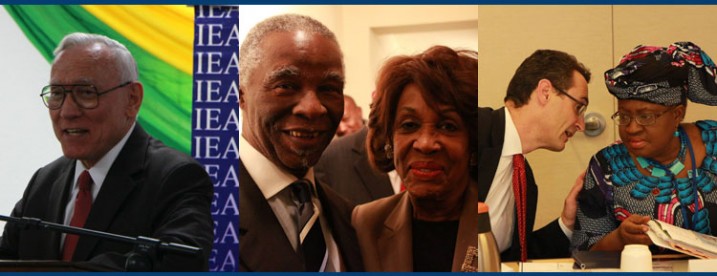
By Matthew Baur Massive cargo ships are all too familiar to those living in big port cities. These giant vessels deliver goods needed for much of our society to function, from medical supplies and medicines, to food...
By Heather Lowe, February 8, 2018

Yesterday’s announcement of a guilty plea by Rabobank NA with corresponding penalty and forfeiture of $369 million did not immediately strike people as new or surprising. In fact, the pattern of anti-money laundering/Bank Secrecy Act (AML/BSA) violations...
By Tom Cardamone, October 6, 2015

A Quarterly Newsletter on the Work of Global Financial Integrity from June to September 2015
Global Financial Integrity is pleased to present
GFI Engages, a quarterly newsletter created to highlight events at GFI and in the world of illicit financial flows. We look forward to keeping you updated on our research, advocacy, high level engagement, and media presence. The following items represent just a fraction of what GFI has been up to since March, so make sure to check our
website for frequent updates.
Global Financial Integrity Conference: Illicit Financial Flows: The Most Damaging Economic Problem Facing the Developing World
Based on the culmination of work GFI has done with the support of the Ford Foundation including a book by GFI, the conference included discussions and keynote remarks from experts on the nature of IFFs, country-level perspectives, and how and why curtailing these IFFs should be a priority for the global community.
By Grace Zhao, June 18, 2014

Apple, Starbucks, and Fiat should prepare to pay their fair share of corporate taxes.
Last year, a U.S. Senate investigation accused Ireland of giving Apple special tax treatment. EU Antitrust Commissioner Joaquin Almunia has now gone further, initiating a probe of these large firms to determine whether the companies’ tax deals with Ireland, the Netherlands, and Luxembourg involve illegal state aid.
The investigations specifically examine the companies’ method of “transfer pricing”. Transfer pricing is simply the accounting practice by which one part of a multinational company charges another part for goods and services to distribute profits between jurisdictions. For large corporations such as Apple, Starbucks, and Fiat, the problem lies in the use of loopholes and creative interpretations of transfer pricing rules to artificially shift profits to countries where there are lower taxes or better tax breaks.
By Tom Cardamone, May 28, 2014

A Quarterly Newsletter on the Work of Global Financial Integrity from January through May 2014
Global Financial Integrity is pleased to present GFI Engages, a quarterly newsletter created to highlight events at GFI and in the world of illicit financial flows. We look forward to keeping you updated on our research, advocacy, high level engagement, and media presence.
This year has been busy so far, with GFI staff traveling to six continents within the first three months alone. The following items represent just a fraction of what GFI has been up to, so make sure to check our new website for frequent updates.
Measurable Change in India
In late April, the Indian Directorate of Revenue Intelligence released a summary of its first two years of increased law enforcement activity targeted at cases of commercial fraud, including illicit financial flows through trade misinvoicing. Their early results have been remarkable: between March 2012 and March 2014, they detected $1.3 billion worth of commercial fraud, and collected $396 million in new revenue.
India is just beginning its effort to crack down on trade-related illicit financial flows, and should serve as an example of the potential that curtailing trade misinvoicing has for development. India began working in earnest to reduce illicit financial flows after a report by Global Financial Integrity showed the economy had lost $462 billion since 1948 due to illicit outflows. Following years of intense political debate and public outcry, the Indian Ministry of Finance declared trade misinvoicing its ‘top priority’ and began working with GFI and others to address it.
WASHINGTON, DC – The Netherlands Ministry of Foreign Affairs is the newest member to join the Task Force on Financial Integrity and Economic Development as a member of the Task Force Partnership Panel, Global Financial Integrity (GFI) announced today.





